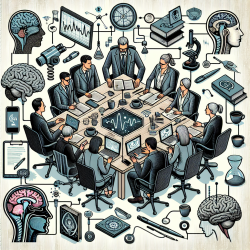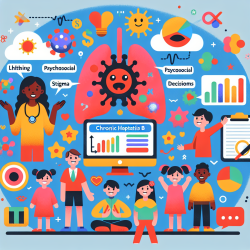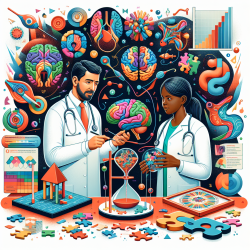Introduction
The "Expert Group Meeting on Aphasia: A Report" provides a comprehensive overview of the current state of aphasia in India, highlighting the challenges and proposing actionable solutions. This report is a valuable resource for practitioners seeking to enhance their skills and improve therapeutic outcomes for individuals with aphasia. In this blog, we will explore the key recommendations from the report and how they can be implemented to advance the practice of aphasia therapy.
Understanding the Scope of Aphasia
Aphasia, a language disorder resulting from brain damage, affects millions globally. The report emphasizes the need for a multidisciplinary approach to address the complexities of aphasia, involving neurologists, speech-language pathologists, psychologists, and other experts. Practitioners are encouraged to familiarize themselves with the diverse linguistic and cultural contexts of their patients, particularly in multilingual regions like India.
Key Recommendations for Practitioners
- Community and Hospital-Based Studies: Conducting epidemiological studies to understand the prevalence and incidence of aphasia is crucial. Practitioners can contribute by participating in data collection and analysis, which will inform better diagnostic and therapeutic strategies.
- Development of Test Batteries: The creation and validation of test batteries tailored to Indian languages are essential. Practitioners should collaborate with linguists and researchers to develop culturally and linguistically appropriate assessment tools.
- Teletherapy and Technology Integration: The report highlights the potential of teletherapy and digital tools in aphasia rehabilitation. Practitioners should explore teletherapy platforms and apps to extend their reach and provide flexible therapy options.
- Advocacy and Education: Raising awareness about aphasia and educating patients, families, and the public is vital. Practitioners can engage in advocacy efforts and develop educational materials to improve understanding and support for individuals with aphasia.
Implementing Action Plans
Practitioners are encouraged to implement the action plans outlined in the report, which include:
- Establishing a national registry for aphasia to track patient outcomes and facilitate research.
- Creating educational modules for different target groups, including medical professionals, caregivers, and patients.
- Organizing workshops and training sessions to enhance skills in aphasia assessment and therapy.
- Promoting the use of Augmentative and Alternative Communication (AAC) devices to support communication.
Encouraging Further Research
The report identifies numerous research opportunities in aphasiology, from exploring new therapeutic interventions to understanding the linguistic aspects of aphasia. Practitioners should consider pursuing research projects that align with their interests and expertise, contributing to the growing body of knowledge in the field.
Conclusion
By implementing the recommendations from the "Expert Group Meeting on Aphasia: A Report," practitioners can enhance their skills and improve the quality of care for individuals with aphasia. The report serves as a roadmap for advancing aphasia therapy and encourages ongoing collaboration and research.
To read the original research paper, please follow this link: Expert Group Meeting on Aphasia: A Report.










